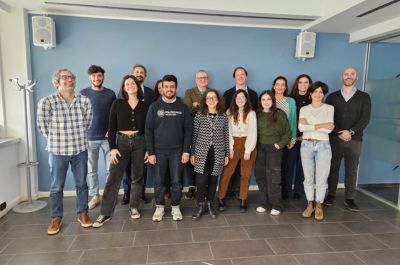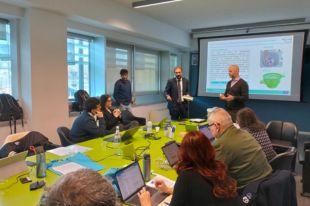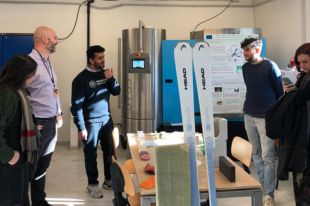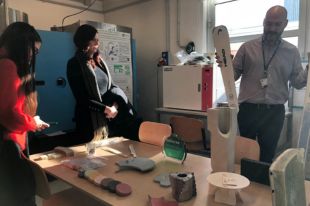
On the 18th and 19th of December 2023, the Kick-off Meeting of the European project YouRban was held, funded under the HORIZON-CL4-2023-HUMAN-01-53 call - Localised and Urban Manufacturing, supporting creativity and the New European Bauhaus, coordinated by Professor Marcello Colledani of the Department of Mechanical Engineering at the Polytechnic University of Milan, also involving the Department of Design.
The YouRban project represents an ambitious effort aimed at co-creating an active and aware urban demand for creative solutions in recycling and upcycling, with particular attention to reinforced polymers. This initiative aims to harness the potential of the local community, promoting sustainability and inclusivity by activating an urban ecosystem involving citizens, artists, designers, architects, and small-scale producers such as FabLabs and artisan workshops, known as Urban Factories. In Europe, it is estimated that by 2025, almost 700,000 tons of waste from reinforced polymer materials will be generated, and YouRban aims to address this challenge in an innovative and participatory manner.
YouRban is based on an innovative research strategy, drawing from the Green Deal and New European Bauhaus initiatives, focusing on laboratory activities and material knowledge to train artists and designers with broad and cross-disciplinary backgrounds. The goal is to promote social change starting from reinforced plastic materials and circular process knowledge, demonstrating it through a flexible, accessible, and mobile urban factory housed in a dedicated truck, the heart of the YouRban project, a mobile laboratory conceived as a true moving workshop. This facility hosts recycling and reprocessing technologies for end-of-life composite materials.
The truck is not just a production tool, but a powerful means of dissemination designed to promote the new values of the circular economy. Its presence in the city for 10 days transforms the surrounding area through specially designed tools, inspired by the interdisciplinary spirit of the New European Bauhaus, hosting exhibitions, artistic events, and participatory activities related to the circular economy. Circular exhibitions around the Truck represent a key moment of the project. Here, citizens, artists, and FabLabs are involved in exploring demanufacturing and reprocessing technologies. In addition to co-creation and regeneration activities, citizens gain awareness of the benefits of the circular economy through an interdisciplinary communication system, consisting of tools such as infographics, videos, and waste materials, illustrating the economic, social, and environmental impact on their community.
The project revolves around two fundamental pillars: the two pilots in Milan and Barcelona. In the Milan pilot, the approach is based on "problems in search of a solution." Citizens report concrete problems, and artists design solutions through an innovative co-creation process. The involvement of YouRban expert technicians ensures specialized skills and training. In the Barcelona pilot, the approach is reversed, with a perspective of "solutions in search of a problem." Artists and creative networks design solutions for change, then seek stakeholders willing to adopt them to solve specific problems and meet the community's needs.
YouRban leverages the mechanism of Open Calls, which represent a crucial tool of the project. Through them, micro, small, and medium-sized enterprises, laboratories, and associations interested in understanding material recycling technologies and opportunities are involved. The management of Open Calls occurs through an urban innovation diffusion mechanism, contributing to raising awareness, training, and creating new jobs and business opportunities within the involved cities.



